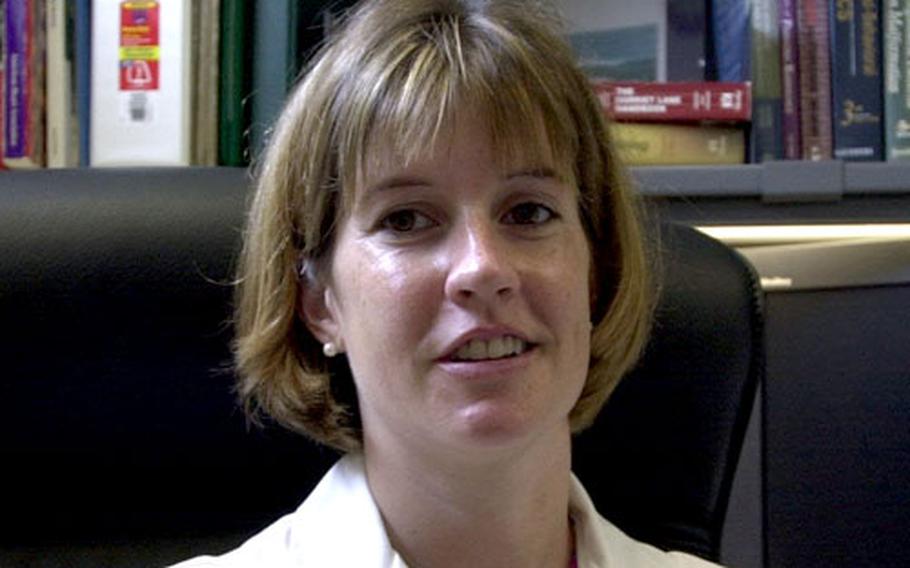
Capt. Christine Waasdorp, staff pediatrician at the 121st General Hospital at Yongsan Garrison, South Korea, worked to bring the Reach Out and Read program to the hospital. (T.D. Flack / Stars and Stripes)
YONGSAN GARRISON, South Korea — Demographics and generous donors helped bring the Reach Out and Read program to the 121st General Hospital, officials said late last week.
Capt. Christine Waasdorp, staff pediatrician, decided to see if she could get the 121st into the program, a national, nonprofit organization that promotes literacy by meshing books with pediatric care.
One of the most important factors in the application process is proving “the community has a need,” she said. Her research showed that statistically, based on basic pay, 40 percent of the U.S. Army community in South Korea is considered to be under the national poverty level. Mainly, she said, that encompasses soldiers with a rank of E-4 or below with family members.
She also learned that nearly 70 percent of the military spouses in South Korea use English as a second language: most wives are South Korean and Russian, with a smattering of Hispanic, Filipina and Japanese.
The combination of lower-income and mixed-language families helped the 121st become the first overseas military hospital to join the program.
“It’s a great program that allows us to tap into their resources,” she said. Instead of spending $5 to $10 for a children’s book, she can buy books for $2 to $3 through Reach Out and Read.
And that means “we’re able to afford the books,” she said.
She said the American Forces Spouses’ Club and the American Woman’s Club of Korea each gave $1,500 so the 121st would have the $3,000 start-up money.
Waasdorp said she ordered about 400 books on Thursday and expects them in about a month. When they arrive, the four-member pediatrics staff will give each child a book during well-baby, well-child visits.
The goal, she said, is increasing vocabulary and literacy.
She was excited about purchasing bilingual books: English to Spanish, Russian and Korean, “to serve a majority of our population and to help parents work through their language barriers.”
As members of the program, staff pediatricians will receive “updated continuing medical education,” mostly online, that “teaches us how to teach families the importance of reading to their children.”
She expects to buy about 1,500 books in the first year.
Waasdorp also needs community assistance to make the program work. She’s seeking volunteers to come to the hospital on a Monday, Wednesday or Friday to read to children for about an hour.
To volunteer, or for more information, call DSN 737-8072 or visit Reach Out and Read on the Web.